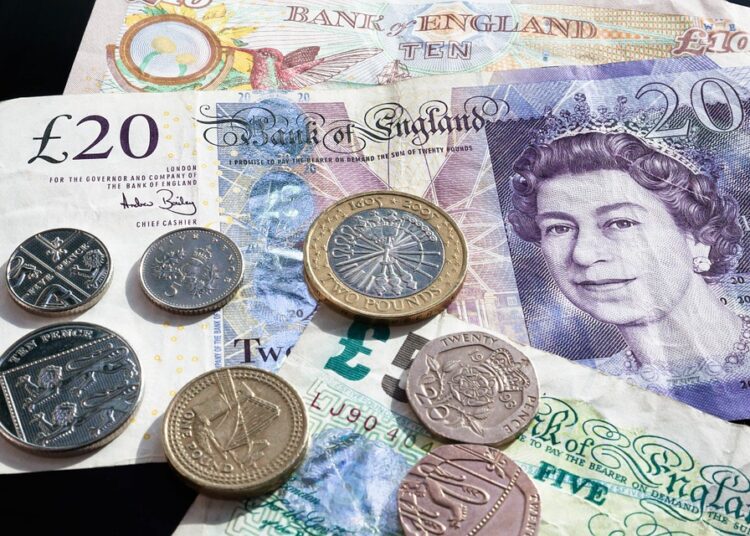LONDON – Sterling fell to five-week lows in early trading on Friday, extending its losses after the Bank of England surprised the market by leaving interest rates unchanged.
Seven of the nine members of the BoE’s Monetary Policy Committee voted to keep the main interest rate at its all-time low of 0.1 per cent, resulting in sterling’s biggest daily fall in more than 18 months.
Policymakers had previously signalled the rate could be raised: Governor Andrew Bailey last month stressed the need to prevent inflation — running above the bank’s 2 per cent target — from becoming permanently embedded, while fellow policymaker Michael Saunders said households needed to brace for “significantly earlier” interest rate rises.
Ulrich Leuchtmann, head of FX and commodity research at Commerzbank, said in a client note, according to Reuters, that Bailey had “allowed the market to run in the wrong direction”, adding that “deteriorated communication” would make the bank’s tools less effective in future.
At 09:26 GMT on Friday, sterling was down 0.4 per cent against the dollar at $1.3449, having earlier hit $1.3439, its lowest since Oct 1.
Versus the euro, it was down around 0.3 per cent at 85.825 pence per euro, having earlier in the session reached 85.9, also its weakest since Oct. 1.
The BoE said it would wait to assess the impact on unemployment levels of the recent end to the government’s pandemic job-protection furlough scheme.
“The less hawkish tone of the BoE´s policy statement caught market participants by surprise after the recent comments from BoE officials including Governor Bailey that had talked up the prospect of earlier hikes,” wrote MUFG currency analyst Lee Hardman in a note to clients.
“We expect that the BoE will feel comfortable to raise rates as soon as at their next policy meeting in December although there is a risk it waits a little longer until February.”
“It leaves the BoE as still one of the more hawkish G10 central banks but not as hawkish as the market had been expecting as it is still sticking to plans for only gradual tightening in the coming years.”
Earlier this year, sterling had been a major beneficiary of the global reopening trade, supported by a faster initial COVID-19 vaccine campaign than any other developed country.






Discussion about this post